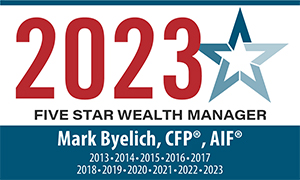When you think of retirement, the first thing you might feel is a sense of excitement or freedom. After all, you’ve worked hard to set yourself up to enjoy your golden years. However, it’s important to remember that retirement also represents a major life transition – one that comes with a unique set of retiree financial planning challenges. You’ll need to continue making thoughtful, intentional financial decisions in order to maintain the security you worked so hard to build.
Below, we’ll discuss five common financial obstacles that retirees face and share potential solutions to overcome them, too.
Challenge #1: An Inconsistent Withdrawal Strategy
Financial planning challenges can emerge early in retirement if you’ve failed to follow an income withdrawal strategy. Remember, the money you saved throughout your working life must sustain you throughout the entirety of your retirement. This is likely to be about 20 years, based on life expectancy trends, though it could be more. Making the most of your savings – and ensuring you don’t outlive your nest egg – means developing and following a tax-efficient withdrawal strategy.
Start by considering the different types of accounts you have, since they are taxed at different rates. For example, 401(k) and traditional IRA withdrawals are taxed at your ordinary income tax rate. Conversely, Roth IRAs and Roth 401(k)s are funded with after-tax dollars, so you’ll withdraw your money tax-free when you’re retired. If you have funds in a taxable investment account, you’ll be taxed at the capital gains rate. A financial advisor can help you develop a long-term, tax-efficient withdrawal strategy.
Challenge #2: Dismissing Your Cash Flow Strategy
For many people, one of the greatest benefits of retirement is the time and freedom to do all the things there simply wasn’t time for previously. You could travel the world, start a new hobby, learn a new language, or work on your golf game. The possibilities are endless, truly. However, your savings are finite, and it’s easy to underestimate the amount you’ll spend in your first few years of retirement. You should absolutely do the fun things you’ve been looking forward to, but it’s important that you don’t overspend. It’s one of the most common financial planning challenges for retirees, and it can be damaging to the longevity of your assets.
The solution is an easy one, though many people find it hard to get started. Use your withdrawal plan to calculate your monthly income, then build a cash flow strategy that covers all your necessities and allows for “extras” too. If you follow your strategy from day one of retirement, you can guard against dangerous overspending.
Challenge #3: Neglecting to Consider Inflation
It’s not uncommon for new retirees to immediately begin reducing the risk in their investment portfolios. Anyone on a fixed income should avoid taking on too much risk in a volatile market, right? This common belief is true – to a point. While an investor’s risk appetite will change at various phases of life, playing it too safe can do more harm than good by leading to inflation risk for new retirees.
Here’s an example: As healthcare costs continue to rise, you’ll feel the effects of it in retirement when healthcare is a necessary expense – often more so the older you get. If your portfolio isn’t keeping pace, your purchasing power diminishes. Since your retirement may last several decades, inflation poses a significant threat to your savings, but working with a financial advisor can help you balance principal protection with opportunities for growth in your portfolio.
Challenge #4: Failing to Plan for Unforeseen Expenses
One of the financial planning challenges that can strike at any phase of life is an unexpected or emergent expense that requires you to dig into your savings. Of course, this is why it’s smart to set aside an emergency fund with at least six months’ worth of your expenses in case of job loss or a major, unexpected expense during your working years.
The stakes are even higher in retirement, though, aren’t they? You no longer have a traditional paycheck, or the option to file for unemployment. So, contrary to what you may assume, it’s ideal to maintain an even larger emergency fund once you leave the workforce. Consider the peace of mind that comes with having 12-18 months’ worth of expenses saved to help you cover unexpected expenses or provide financial stability during an economic downturn.
Challenge #5: Trying to Go It Alone
You may have invested considerable time and effort into your own financial education – and I applaud you for that! It likely served you well up to this point, but retirement represents a significant financial transition. Partnering with a financial advisor can be helpful in multiple areas of financial planning for retirees, including overcoming common financial planning challenges that could put you in danger of outliving your nest egg.
Do You Need Guidance in Overcoming Retiree Financial Planning Challenges?
If you’re like me, you’re looking forward to a retirement full of the things you’ve always dreamed of – not one that is fraught with financial stress and anxiety. If you’re already retired, or if you’re nearing this life transition, it’s a smart time to seek out guidance on how best to move forward.
At Attleboro Wealth Management, we can help you develop a personalized strategy and prepare to overcome financial planning challenges so that you can accomplish your retirement goals while remaining on firm financial footing, too. If you’re interested in speaking with one of the experienced professionals on the Attleboro Wealth Management team, please reach out today. We look forward to hearing from you!








